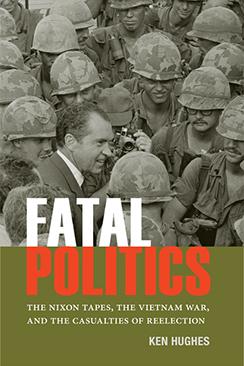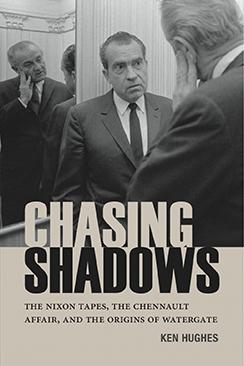Fast Facts
- Bob Woodward called Hughes "one of America's foremost experts on secret presidential recordings"
- Has spent two decades mining the Secret White House Tapes
- Expertise on Lyndon Johnson, Richard Nixon, Secret White House Tapes, abuses of presidential power, Watergate, Vietnam War
Areas Of Expertise
- Foreign Affairs
- American Defense and Security
- Governance
- Leadership
- Political Parties and Movements
- Politics
- The Presidency
Bob Woodward has called Ken Hughes “one of America's foremost experts on secret presidential recordings, especially those of Lyndon Johnson and Richard Nixon.” Hughes has spent two decades mining the Secret White House Tapes and unearthing their secrets. As a journalist writing in the pages of the New York Times Magazine, Washington Post, and Boston Globe Magazine, and, since 2000, as a researcher with the Miller Center, Hughes’s work has illuminated the uses and abuses of presidential power involved in (among other things) the origins of Watergate, Jimmy Hoffa’s release from federal prison, and the politics of the Vietnam War.
Hughes has been interviewed by the New York Times, CBS News, CNN, PBS NewsHour, Los Angeles Times, Associated Press and other news organizations. He is the author of Chasing Shadows: The Nixon Tapes, the Chennault Affair, and the Origins of Watergate and Fatal Politics: The Nixon Tapes, the Vietnam War and the Casualties of Reelection.
Hughes is currently at work on a book about President John F. Kennedy’s hidden role in the coup plot that resulted in the overthrow and assassination of another president, Ngo Dinh Diem of South Vietnam.







